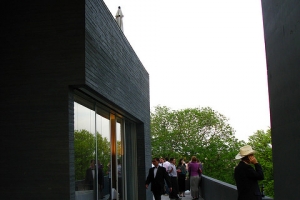Support migrant centric journalism today and donate

The European Union and several eastern European countries are calling on Washington to allow visa-free travel to the US from all EU countries, warning on Feb. 8 that the issue is festering and could poison pro-American public opinion in those countries.
"We who sit here are the strongest supporters of the US, but the visa issue is the strongest one in the hands of those who do not want Europe and America to work together," András Simonyi, Hungary's ambassador to the US, said on a panel in Washington that included John Bruton, the EU ambassador, and ambassadors from Poland and the Czech Republic.
"It is the only issue in our bilateral relations with the US," said Petr Kolar, Czech ambassador to the US. "There are no other problems."
Mr Bruton said the EU wants citizens from all of its countries to be able to travel to the US without visas. "We don't want other people to be picking and choosing between our members," he said. "We're a club."
Lech Kaczynski, Poland's president, arrived in Washington for meetings this week with US President George W. Bush. The visa issue is likely to figure prominently in discussions.
Citizens of western European countries can currently travel to the US without a visa, but Washington still requires visas from eastern European countries – even those that have joined the EU and the North Atlantic Treaty Organisation.
The discrimination particularly rankles those countries, such as Poland and Hungary, that have supported the US by sending troops to Iraq and Afghanistan, and whose citizens are very pro-American, unlike much of western Europe.
In addition, eastern Europe does not have a significant indigenous Muslim population, unlike western Europe where Islamic extremists have found some receptive audiences.
"Our countries don't pose threats to US security," said Janusz Reiter, Poland's ambassador to the US. "We are not part of the problem, we are part of the solution."
The US administration has said that these countries do not yet meet the technical requirements for visa-free travel, in particular a visa rejection rate of less than 3 per cent, a reduction in the number of their citizens who overstay visas in the US and the adoption of biometric passports. Congress, which is in the process of writing more restrictive US immigration rules, has also been reluctant to make any changes that could be seen as opening the door for more illegal immigration.
The visa requirement has become particularly onerous since the September 11 attacks, after which the US began requiring face-to-face interviews for all visa applicants.
The Heritage Foundation, a conservative Washington think-tank, has argued that on security grounds the US should allow visa-free travel from the new democracies in eastern Europe, as well as South Korea and India. It said this would facilitate intelligence co-operation against terrorism and force these countries to adopt strict regimes to safeguard against use of their passports by would-be terrorists.





















